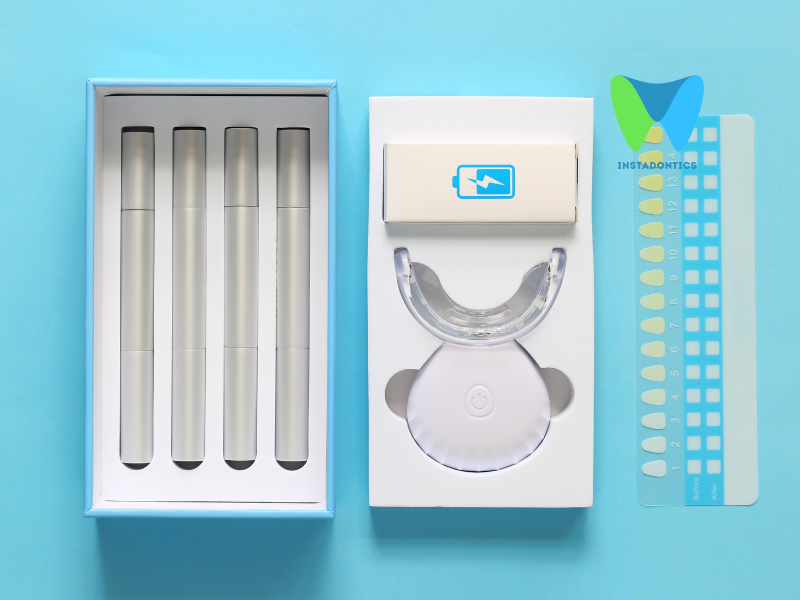How often should you whiten your teeth | In the realm of maintaining a professional appearance, a bright, confident smile can significantly impact how you are perceived by colleagues and clients alike. Given the wide variety of teeth whitening methods available, from at-home natural remedies to professional dental treatments, it is crucial to ascertain how often one should engage in teeth whitening practices to ensure both efficacy and oral health safety. This article aims to deliver clear, concise, and professional guidance on the recommended frequency for teeth whitening, adhering to best practices within dental care.
How often should you whiten your teeth | Professional Teeth Whitening
When it comes to professional teeth whitening treatments performed by a dentist, the recommended frequency significantly depends on the specific method used and the individual’s dental health. Generally, professional treatments can offer more immediate and noticeable results than at-home solutions, with effects lasting anywhere from six months to two years. Dental professionals typically advise that patients undergo professional whitening procedures once a year, with this guideline subject to variation based on personal oral health conditions and the rate of discoloration reoccurrence.
To maintain the results of professional whitening for as long as possible, it is recommended to follow good oral hygiene practices, including brushing twice daily, flossing, and regular dental check-ups, alongside minimizing the intake of staining agents such as coffee, tea, and red wine.
How often should you whiten your teeth | At-Home Whitening Products
Over-the-counter whitening products, such as whitening strips and trays, present a more accessible but less potent option for teeth whitening. Manufacturers usually provide explicit instructions regarding the frequency of use, often suggesting daily application for a period of two weeks. Following initial treatment, it may be necessary to repeat the process every four to six months to maintain the desired level of whiteness.
It’s paramount to adhere strictly to product instructions to prevent overuse, which can lead to enamel damage, increased tooth sensitivity, or gum irritation.
How often should you whiten your teeth ? | Natural Whitening Methods
For those who prefer natural teeth whitening methods, such as oil pulling, baking soda, or hydrogen peroxide, moderation is key. These methods should be utilized cautiously and sparingly as part of a regular oral health routine. Unlike professional and over-the-counter whitening treatments, natural methods typically yield gradual results. Consistency, rather than frequency, is critical with natural whitening practices. However, they should not replace daily oral hygiene practices or regular dental check-ups.
Whiten Your Teeth Naturally |10 Effective Methods
Listening to Your Teeth
Paying attention to how your teeth respond to whitening is crucial. If you experience increased sensitivity, gum irritation, or other discomforts, it may be a signal to reduce the frequency of whitening treatments or to consult a dental professional for personalized advice.
While achieving a brighter smile is a common goal, ensuring the health and safety of your teeth is paramount. Whether opting for professional treatments, over-the-counter products, or natural methods, it is crucial to proceed with an informed approach. Regular consultations with a dental care provider can offer personalized insights into the most appropriate whitening frequency for your individual dental health needs, allowing you to maintain both the aesthetic and well-being of your smile.
How often should you whiten your teet | Understanding the Balance
Whitening your teeth too frequently can lead to enamel degradation, increased sensitivity, and other dental health issues. Conversely, infrequent whitening might not deliver the desired level of brightness or could allow for the reappearance of stains. Finding a balanced approach is essential.
Monitoring Changes and Sensitivity
Monitoring your teeth’s response to whitening treatments is critical. If you note increased sensitivity or gum irritation, consider extending the intervals between whitening sessions. Each individual’s sensitivity and response to whitening agents will vary, necessitating a personalized approach to determining optimal frequency.
Following Professional Guidance
For professional treatments, it’s pivotal to adhere to your dentist’s specific recommendations. Dental professionals assess individual needs based on oral health status, enamel strength, and prior experiences with teeth whitening. Typically, professional treatments may be suggested annually, but this can vary based on individual assessments.
Over-The-Counter Products
With over-the-counter products, strict adherence to the instructions is mandatory. These products are designed with specific formulations that dictate their safe use frequency. Generally, over-the-counter strips and trays might be used for a continuous period (e.g., daily for two weeks) followed by a break of four to six months. Always verify product guidelines to avoid misuse.
Natural Whitening Approaches
Natural methods, deemed to be gentler, may be utilized more frequently than chemical treatments. However, “natural” does not equate to “risk-free.” Even with natural methods, it’s advisable to conduct these practices in moderation and to be vigilant about any adverse reactions. For example, using baking soda as a whitening agent should not become a daily routine due to its abrasive nature, which could potentially harm enamel with excessive use.
Tailoring to Your Needs
Finally, the most suitable frequency for teeth whitening is highly individualized. Factors such as diet, oral hygiene practices, and personal aesthetic goals play significant roles in this determination. Individuals who consume staining substances like coffee, tea, or red wine more frequently may require more frequent whitening to maintain their desired results. Nevertheless, this should be balanced with the importance of preserving tooth enamel and overall oral health.
In essence, the question of how often you should whiten your teeth does not have a one-size-fits-all answer. It requires a tailored approach that considers the method of whitening, individual oral health, sensitivity levels, and lifestyle factors. Consulting with a dental professional before embarking on or adjusting any whitening regimen is paramount to ensure safety and effectiveness. By adopting a balanced and informed approach, you can achieve and maintain a bright, healthy smile safely.



